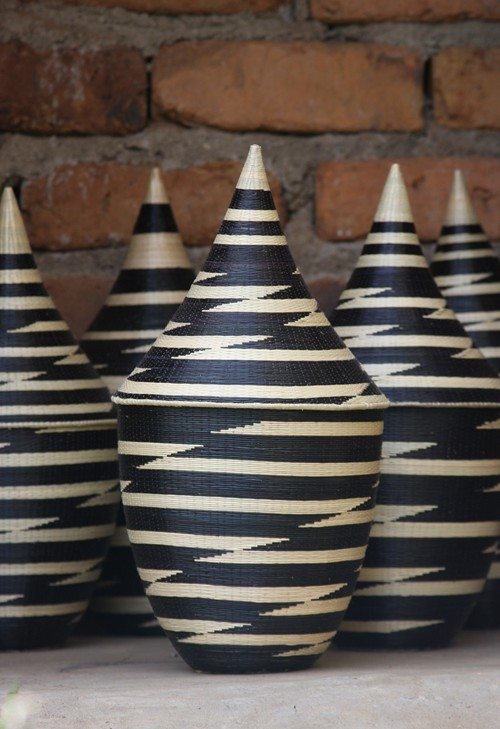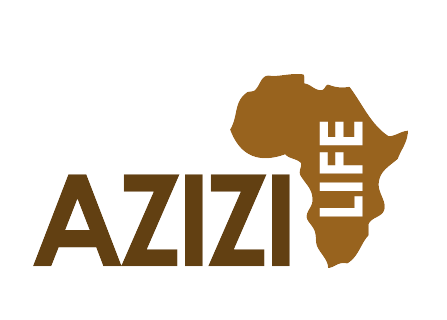Survival and Forgiveness: Artisan Pascasie’s Story
By Founder and CEO of The Marketplace Marisa Sellman
Will you tell me your story?
She nods, folds her hands in her lap, and stares off. “I left my village and went to Kigali to sell my baskets. That night the President’s plane went down.” The day was April 6, 1994. That was the start of genocide. For 100 days, government-organized groups of Hutu citizens and militias massacred mass numbers of people of the minority Tutsi group. It was reported that 1,000,000 died.
Meet Pascasie. She was a weaver who was trapped in the capital city and unable to go home. She hid at a Catholic Church along with hundreds of other people. 7 days after the plane crashed, Hutu members came to the church and started separating some of the men from the group. Once separated, they killed them in front of everyone. Pascasie did not know if she was going live or die that day. At this point she had no idea of what was happening or if this was only happening in just the capital and not in the outlying villages.
Pascasie teared up and had a faraway look in her eyes. Even though it happened 26 years ago, it was still very fresh. She was a married mother of 6, and she didn’t know how her family was doing. She stayed in the church fearing for her life but she couldn’t leave. The perpetrators came back June 6th and pulled the rest of the men from the group and killed them. “Only one woman died that day. She couldn’t bear to leave her husband so she followed him and they killed her. They planned to come back in a couple of days to kill the rest of us.”
Pascasie wiped her eyes, and I openly cry while doing my best to capture her story. Though she sits across from me, I can feel her pain. It’s as if she is there again.
“They dug holes so they could kill and bury us and sometimes they would just bury people alive.” Just before they were to kill them, the army came and stopped them. The army secured Kigali before heading to the other villages. it would be months before she could head to her village and know the truth about her family.
Pascasie started the pilgrimage back to her village only to find nothing; no house, no husband, no children. She decided to head back to Kigali and try to survive. As she was leaving, five orphans from her village followed her, they had nowhere to go and no one to take care of them. She took them in. She found an abandoned house and would go into the fields digging up potatoes to feed everyone.
After a year she decided she needed to go back to her village to search for her family. When she got back, she found out she was the only Tutsi widow in the whole village. That day she took in another seven orphans.
She suffered from severe depression but she had to be strong for the kids. She came up with an idea. How can I get out of this situation? She was a weaver by trade so she gathered others to weave to try to make money, to build community, and to move on. But there was no market. In 1997, a project came that heard about her and how she took in the orphans and helped her create a market. She started selling baskets.
Pascasie needed the truth. She needed to know what happened to her family. She went to the prison where the perpetrators were kept. They wouldn’t talk to her. She came back week after week. Finally, the perpetrators agreed to talk to her. She found out they had killed her husband and three of her children. They asked for forgiveness. She finally had the truth. She continued to go back to the prison, and she taught them to weave. “They needed to have some skills when they left prison to make money.” She invited them to weave with her. They created a beautiful basket together called the Peace Basket. She felt the basket united people.

I struggled with her story for days before writing it because I wanted to share it in a respectful way. It’s easy to lose the person in the event. 1,000,000 people are just too large to wrap our minds around. But to hear Pascasie’s account allows us to put ourselves into her story and try to understand the horrific nature of the event.
I asked Pascasie how she could be so strong. She said her faith in God made her strong. She had survived two Rwandan wars and she knew after each war help always came. She just had to hang on.
Around 2009 her cooperative, the Agaseke k’Amahoro Association, started weaving for Azizi Life. It takes six days to make one Traditional Grass Peace Basket. We have sold this basket for years in The Marketplace, and I never knew this story. Now I will definitely look at it and think of Pascasie and her strength, resiliency, and a level of forgiveness many of us will never understand.
ABOUT MARISA AND THE MARKETPLACE: The Marketplace, created by Marisa Sellman, is a nonprofit Christian fair trade online store that partners with ministries around the world who are loving people for who they are and where they are at. Love opens the door. Each product represents a life changing journey from hopelessness to empowerment; from being lost to experiencing the love of Christ.
Opinions expressed in this piece do not necessarily represent those of Azizi Life, but those of the author.




Leave a Reply
Want to join the discussion?Feel free to contribute!